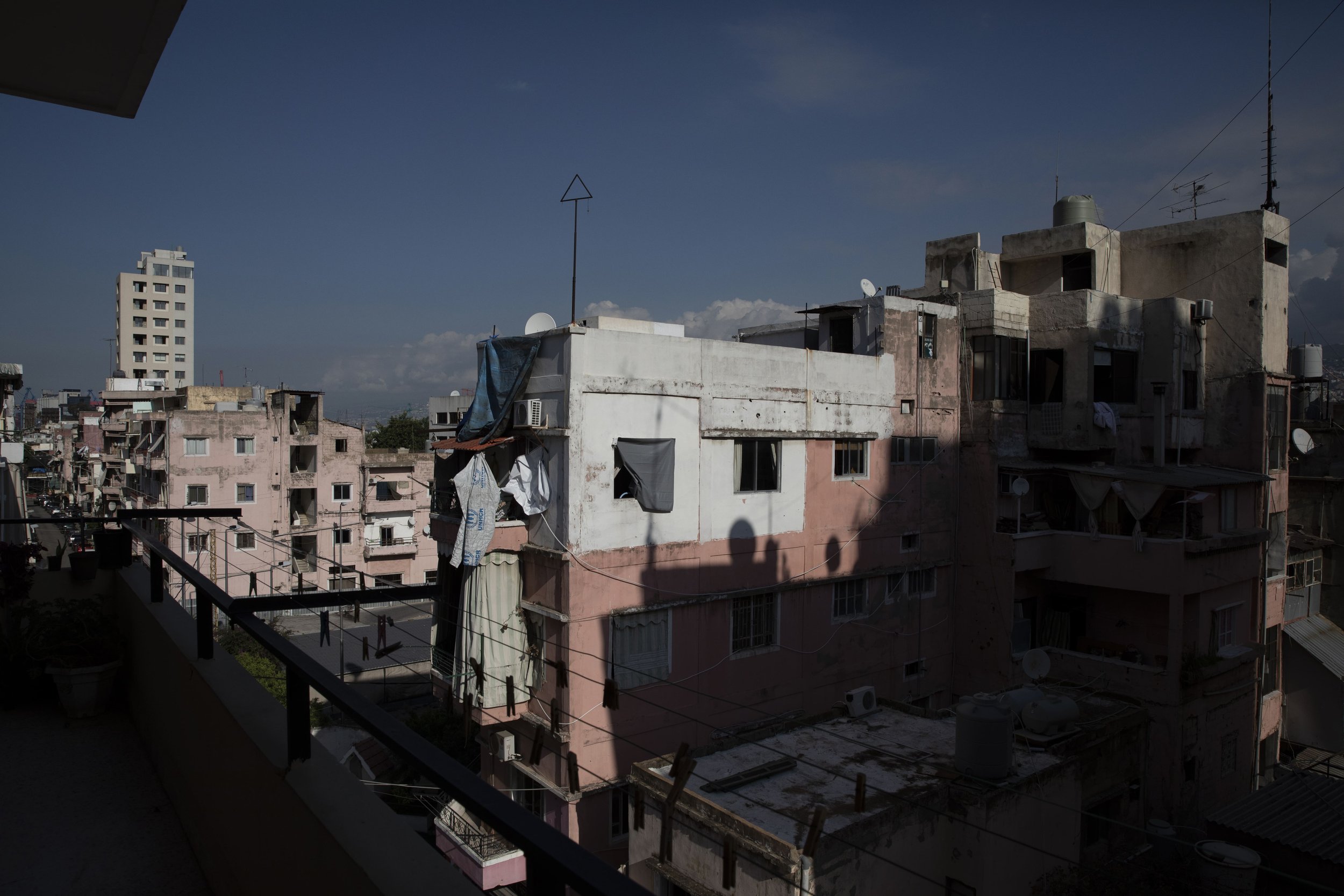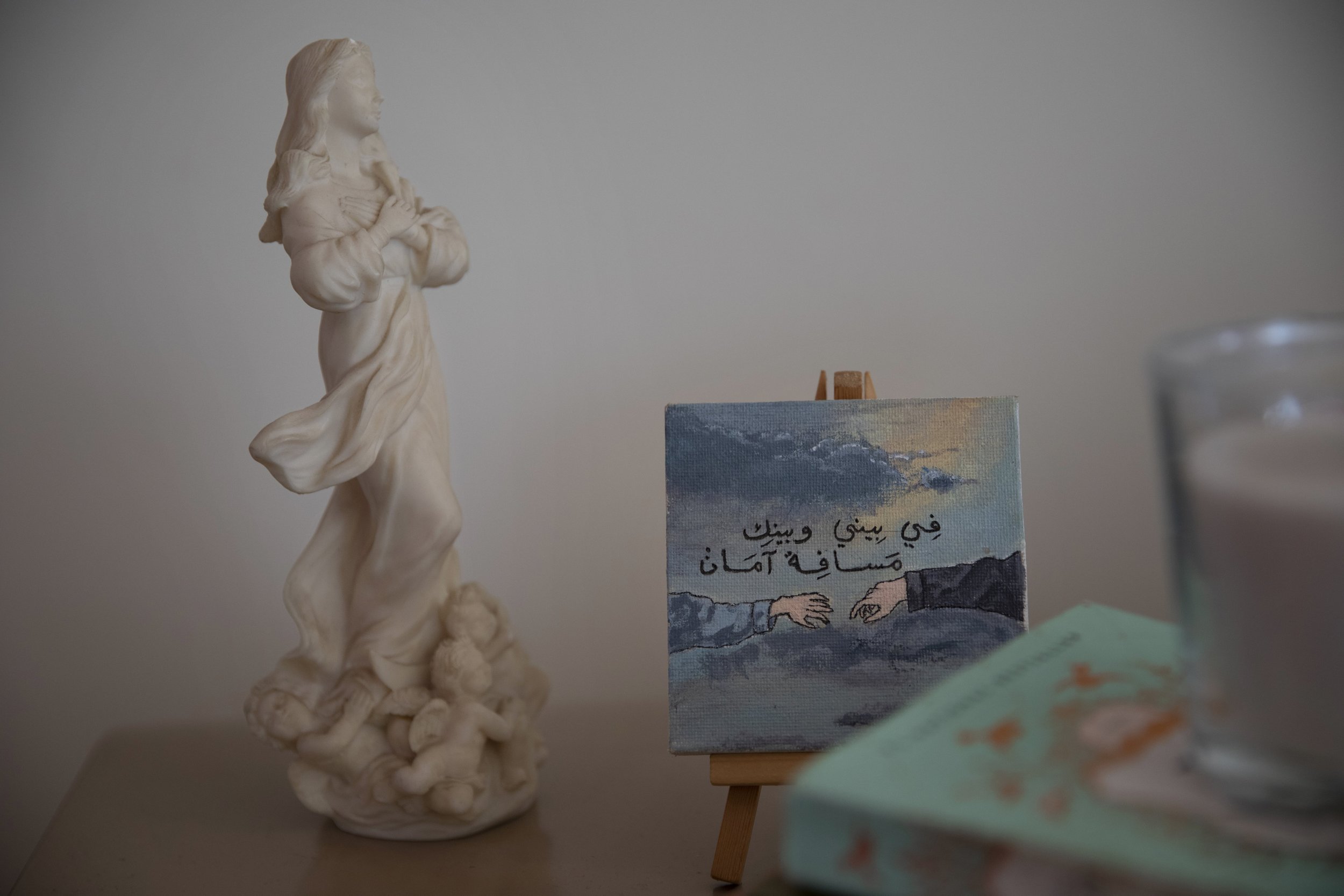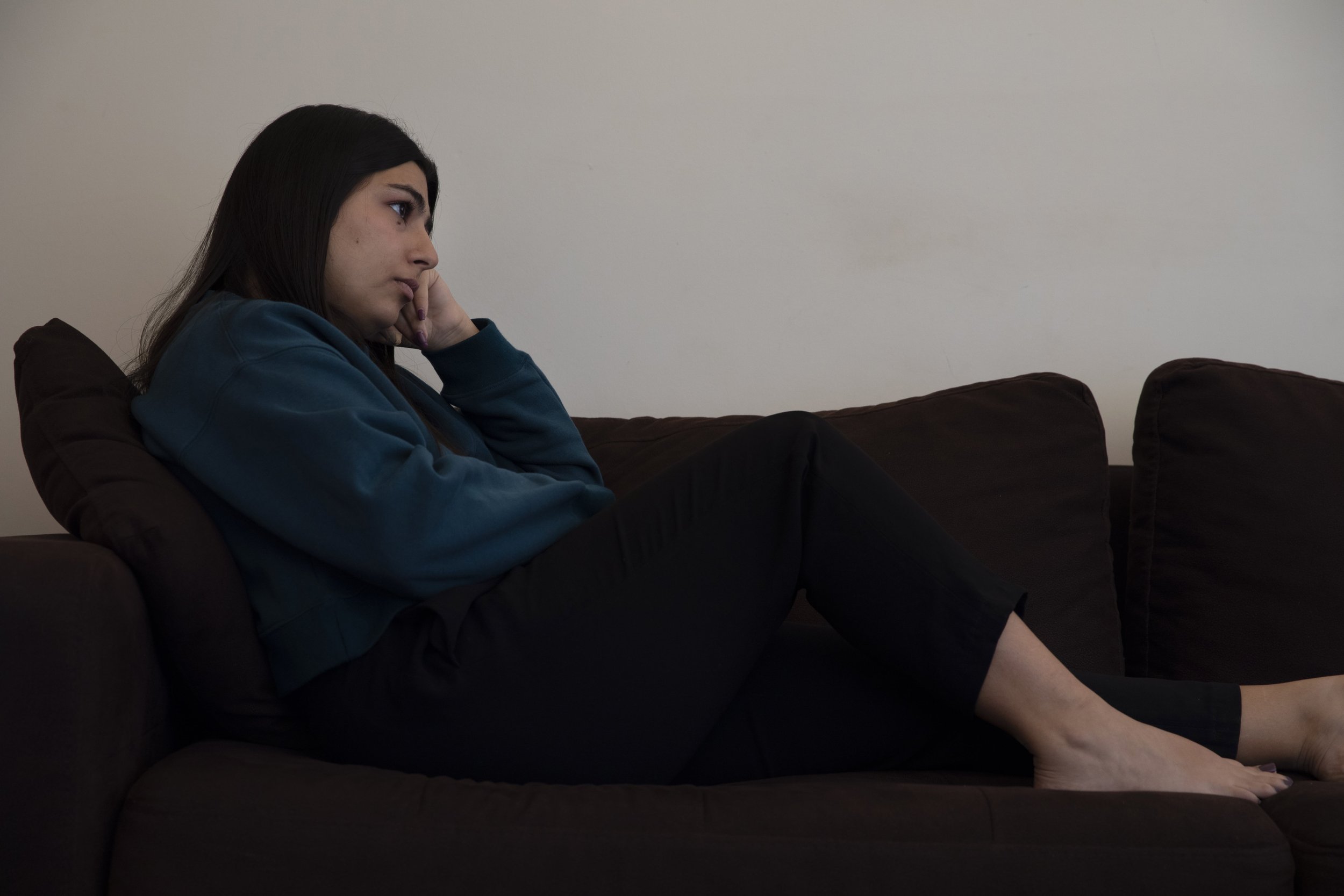Farah: Syrian in Lebanon and Lebanese in Syria
اقرأ باللغة العربية أدناه
Farah
Farah was born in Beirut in 1995, to a Lebanese mother and a Syrian father. Her mother used to obtain student residence permit for her and her 3 sisters on an annual basis. Back then, the information issued by the general security regarding Lebanese mothers and their children were very ambiguous, so Farah’s mother used to ask for these annual permits, until she discovered by coincidence that she could ask for the infamous courtesy residency permit. For Farah, this permit and its three years validity is completely absurd: “let’s assume that the courtesy residency permit is a fair solution, why is it limited to three years only? What would change in three years? Will my mother stop being my mother in three years? Or will she not be Lebanese anymore? This is so absurd, plus it is a very short period to recollect papers and renew the permit…” says Farah laughing with sarcasm.
The process of registering her children in public schools was not as easy for Farah’s mother, as she had to register them first on the long waiting list, in order to secure spots for them. They would then be selected after that Lebanese student’s lists are complete, since they are a priority.
After graduating high school, Farah pursued a degree in “communication and public relations studies” at the “Lebanese International University”, and surprisingly she discovered that her registration fees were way more expensive than those of Lebanese students “We are in the same academic year, taking the same courses, having the same academic experience, why then do I have to pay more fees? This is unacceptable and entirely unjustified” adds Farah, always with her sarcastic tone.
Shortly after, Farah was forced to quit college and stop her studies due to financial reasons, especially that, as a non-Lebanese she was not eligible to apply for a loan from the bank. It took her two years to go back to university, during which she worked hard and saved money to be able to resume her studies.
Injustice and discrimination accompanied Farah in all stages of her life, and it was not limited to the administrative aspect and official papers only. Discrimination was explicit at the social level too, and the examples are numerous. Farah was always considered Syrian in Lebanon and Lebanese in Syria, like when she used to visit her father’s family. "The day when the Lebanese scout of which I was a member, took part in a dance competition in Jordan, I could not travel with my girlfriends to present the dance that we had rehearsed for many months, I was excluded because as a foreigner I could not represent Lebanon in an international competition”.
“ I cannot tell you the enormous disappointment I felt that day”
A series of disappointments ranging from the simple fact of opening a bank account which turned out to be extremely complicated for her, to the many refusals during job interviews, to the fear and stress she felt as soon as she arrived at an army or police checkpoint.
At the administrative level, Farah was obliged to sign employment contracts which did not correspond to her real functions. The fact that she was of Syrian nationality limited her contracts to the position of housekeeper, whereas her duties were those of head of department!
When asked if she wants to leave Lebanon, Farah's answer was categorical, “definitely” she replied. She certainly wants to go “somewhere else”, because she has never felt any belonging to this country, as "here" has always been equivalent to fear, anxiety and disappointment: the fear of expulsion, the anxiety linked to the impossibility of projecting oneself into the future, and the absence of security.
But all these feelings do not prevent Farah from being joyful; the injustice of the Lebanese law will not be able to take away the smile and laughter that have accompanied us throughout this interview.
لا ينتهك قانون الجنسية اللبناني التمييزي حقوق النساء وأسرهن في كل يوم فحسب، بل إن هذا القانون الصادر في العام 1925 والذي يحرم المرأة اللبنانية من حقها بإعطاء الجنسية لأسرتها يتعارض مع الدستور اللبناني فيما يتعلق بالمساواة بين جميع المواطنين والمواطنات، ويعيق حصول النساء على حقوقها كاملة، ويشكل خرقاً فاضحاً لحقوق الإنسان والقانون الدولي ومخالفة لالتزامات لبنان الدولية..
ولدت فرح درويش في لبنان في العام 1995، لأب سوري وأم لبنانية، وكانت والدتها تستحصل لها ولأخوتها على إقامات مدرسية، وهي إقامات ليست مرتبطة بكونها أم لبنانية بل تمنح لجميع الطلاب الأجانب على السواء. لم تكن المعلومات الصادرة عن الأمن العام واضحة في ذلك الوقت فكانت الأم تطلب في كل سنة تلك الإقامة المدرسية، إلى أن اكتشفت صدفة أنها تستطيع الإستحصال على إقامة المجاملة. تستغرب فرح فكرة إقامة المجاملة وصلاحيتها المحدودة بثلاث سنوات معلقة: "فلنفترض أن إقامة المجاملة هي شيء جيد ومنصف، لماذا تقتصر صلاحيتها على ثلاث سنوات؟ ماذا سيتغير في ثلاث سنوات، هل إن والدتي لن تبقى والدتي؟ أم إنها ستصبح غير لبنانية خلال تلك السنوات الثلاث، غريب جداً هذا الأمر، أضف إلى أنها فترة قصيرة جداً..." لم يكن التسجيل في المدارس الرسمية أمراً سهلاً على والدة فرح التي كان عليها تسجيل أولادها على لوائح الانتظار للتأكد من أن هناك أماكن شاغرة لهم بعد التأكد من اكتمال لوائح التلاميذ اللبنانيين/ات الذين لهم الأولوية في التسجيل. ثم انتقلت فرح لدراستها الجامعية حيث تسجّلت في الجامعة اللبنانية الدولية، وتخصصت في العلاقات العامة، وكانت المفاجأة بأن رسوم التسجيل التي تدفعها تعادل أضعاف رسوم تسجيل الطلاب اللبنانيين/ات وهو أمر تجده فرح مجحفاً للغاية: "فنحن في نفس الصف ونتعلم المواد نفسها ونعيش التجربة التعليمية نفسها فلماذا يتوجب عليّ دفع رسوم أعلى؟ هذا أمر غير مقبول وغير مبرر كليا"
بعدها اضطرت فرح للتوقف عن الدراسة لمدة عامين لأسبابٍ مادية، وكونها غير لبنانية لم تكن مؤهلة لطلب قرض من المصرف لإكمال تعليمها، ثم عادت إلى الجامعة بعد ادخارها مبلغاً من المال يسمح لها باستكمال دراستها.
الإجحاف والتمييز رافقا فرح في كل مراحل حياتها وذلك لا يقتصر على الناحية الإدارية وعلى الشق المتعلق بالمعاملات الرسمية فقط بل هو تمييز من الناحية الاجتماعية أيضاً. والأمثلة على ذلك لا تحصى، ففي طفولتها كانت فرح دائماً السورية في لبنان واللبنانية في سوريا حين كانت تزور والدها هناك، وتتذكر فرح: "حين نظمت فعالية في الأردن ودعي كشاف التربية الوطنية للمشاركة، لم أتمكن من السفر مع رفيقاتي لتقديم الرقصة التي تدربت عليها أشهراً طويلة، واستثنيت لكوني أجنبية لا أستطيع تمثيل لبنان! لا أستطيع أن أصف لك كمية الإحباط الذي أحسست به في تلك اللحظة"، وتضيف: "من الصعب أن أحصي لك عدد مقابلات العمل التي قمت بها والتي كانت تسفر دائماً عن الرفض لأنني أجنبية"، أما عن تعقيدات عملية بسيطة كفتح حسابٍ لها في البنك أو الضغط والخوف اللذين تشعر بهما عند وصولها إلى نقاط تفتيش للقوى الأمنية فحدث ولا حرج...
من الناحية الإدارية أيضاً كان على فرح دائماً توقيع عقود عمل لا تتطابق فعلياً مع مهامها، فكونها سورية الجنسية يقتصر عقدها رسمياً على وظيفة عاملة تنظيفات بينما هي فعلياً مديرة قسم!
ترغب فرح قطعاً بالسفر خارج لبنان، فهي لم تشعر يوماً بالانتماء إلى هذا البلد حيث رافقتها مشاعر الخوف والقلق وخيبة الآمال طيلة حياتها: ”الخوف من الترحيل والقلق على المستقبل وانعدام الأمان.”
Writer
Khouloud Yassine
Photographer
Elsy Haddad
Born in 1982, I am a documentary photographer based in Beirut. I also lead workshops in several regions of Lebanon, introducing children to photography.
My work revolves around transition and change, as well as around places that hold memories and been witness to different eras and events. I am interested in people and their stories, and look for ways of sharing it. I like to push the boundaries of the genre sometimes bringing my own fiction to the story.
In 2015, I received a grant from ADPP for my project 'Stranded - On Life After Imprisonment' which was exhibited during the Golf Plus Photo week in Dubai in 2019.
Since 2019, I have been part of Collectif 1200, a collective of 11 Lebanese photographers, working on topics related to Lebanon and the current situation. Together we showed our work in FAB (Festival des Arts de Bordeaux) in 2021 and in Casa Arabe during Photo España 2022.
I now divide my time between my work and my 6-year-old daughter








